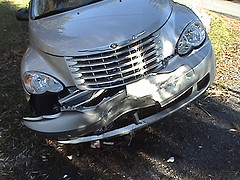 For students who are planning to travel abroad, the allure of going to a new country filled with the promise of exciting possibilities is certainly a dizzying idea. It can, however, all go wrong in a hurry if they don’t make the necessary preparations. Here are some useful tips (including getting student travel insurance):
For students who are planning to travel abroad, the allure of going to a new country filled with the promise of exciting possibilities is certainly a dizzying idea. It can, however, all go wrong in a hurry if they don’t make the necessary preparations. Here are some useful tips (including getting student travel insurance):
Travel Documents: Before you can travel abroad, sort out your travel documents: the most basic is a passport. Depending on the country of residence and the country of destination, you may need to apply for an entry visa. The criteria and duration of a visa varies make sure to do the right research to find out more.
Locating Embassies or Consulates: Whether you like it or not, sometimes, problems can occur in the country you are visiting. You may lose your passport, your money, or you may just need some help. Write down the contact information of your embassy or consulate in the country of your destination, just in case.
Responding to Emergencies: Emergencies can happen anywhere, even when you are away in paradise. Hurricanes, floods, and accidents are unavoidable when they occur. While there’s no way to adequately prepare for such calamities, adopt a positive mindset in the most negative environments. No matter what happens, try to remain as calm as possible. Make it a point to contact your embassy or consulate.
Student Travel Insurance: Students don’t like to talk about insurance because they can’t imagine anything catastrophic happening to them, especially when they are on holiday in an exotic location. When people go to a foreign land, it’s not uncommon to fall ill, even when they are students. Check to see if you are covered under your parents’ health insurance plan in the country you are visiting: If not, get your own travel insurance. As a student, you will be eligible for some cheap travel insurance. This is really a small price to pay if you require medical attention in a foreign country.
Respecting Local Laws and Customs: When you are young and willful, you tend to have a high opinion of yourself. It’s perfectly normal. Free from the laws of their own country, many students who travel abroad may think they are free to do whatever they please in a faraway land. Different countries have different laws and customs. What is permissible in one country may not be permissible in another country. Sometimes, students get into trouble by breaking local laws or offending local customs, without realizing its consequences. Before you travel to the country of your destination, it will be useful to find out about the local laws and customs so you don’t land into unnecessary trouble.
The idea of traveling abroad can be most enticing, especially for students who are just beginning to discover more about themselves and the world around them. To make the most of the trip, it’s best to practice responsibility and restraint.
Photo credit: https://www.flickr.com/photos/rjnagle/

 As air travel becomes more affordable, more and more people are traveling all over the world. The idea of going to a faraway land is no longer far-fetched as there are many budget airlines to make it possible. No matter the carrier, there’s always a certain amount of risk associated with air travel. As such, it’s good to take a look at some of the benefits of flight accident insurance.
As air travel becomes more affordable, more and more people are traveling all over the world. The idea of going to a faraway land is no longer far-fetched as there are many budget airlines to make it possible. No matter the carrier, there’s always a certain amount of risk associated with air travel. As such, it’s good to take a look at some of the benefits of flight accident insurance. Nowadays, more and more single women are opting to travel alone. There’s something exotic and exciting about the endless possibilities which may come out of a trip to a foreign land. Other than the opportunity to “find yourself†as Joplin would remind, it’s also a fantastic chance to be totally free, and perhaps discover a side which you had never known existed. As much as there are fruitful experiences to be had, single women who travel alone are also exposed to some rather unique dangers. Here are some tips, in addition to travel insurance for single women, to help you along:
Nowadays, more and more single women are opting to travel alone. There’s something exotic and exciting about the endless possibilities which may come out of a trip to a foreign land. Other than the opportunity to “find yourself†as Joplin would remind, it’s also a fantastic chance to be totally free, and perhaps discover a side which you had never known existed. As much as there are fruitful experiences to be had, single women who travel alone are also exposed to some rather unique dangers. Here are some tips, in addition to travel insurance for single women, to help you along: Many people rent cars when they go on vacations. Compared to the usual forms of public transportation, car rentals offer greater flexibility and convenience. However, it can be dangerous to drive in a foreign land or an unfamiliar place. To protect both the car rental companies and the people who rent cars, rental car insurance is highly recommended.
Many people rent cars when they go on vacations. Compared to the usual forms of public transportation, car rentals offer greater flexibility and convenience. However, it can be dangerous to drive in a foreign land or an unfamiliar place. To protect both the car rental companies and the people who rent cars, rental car insurance is highly recommended. Most vacationers and travelers will opt for single trip travel insurance when they travel, but frequent travelers should consider getting an
Most vacationers and travelers will opt for single trip travel insurance when they travel, but frequent travelers should consider getting an  Many travelers spend a lot of time and effort planning the perfect vacations, and then, they will purchase just about any travel insurance policies available at the last minute. One thing they do not realize is they can get better coverage and save a considerable amount of money if they spend enough time searching for the best travel insurance policy.
Many travelers spend a lot of time and effort planning the perfect vacations, and then, they will purchase just about any travel insurance policies available at the last minute. One thing they do not realize is they can get better coverage and save a considerable amount of money if they spend enough time searching for the best travel insurance policy. Travel insurance is a necessity for travelers because it provides compensation for accidents or loss of belongings that may occur during a trip. While most travelers are concerned with getting the best prices for accommodations, transportation, and travel packages, few of them are aware they can save a lot of money on travel insurance too.
Travel insurance is a necessity for travelers because it provides compensation for accidents or loss of belongings that may occur during a trip. While most travelers are concerned with getting the best prices for accommodations, transportation, and travel packages, few of them are aware they can save a lot of money on travel insurance too.